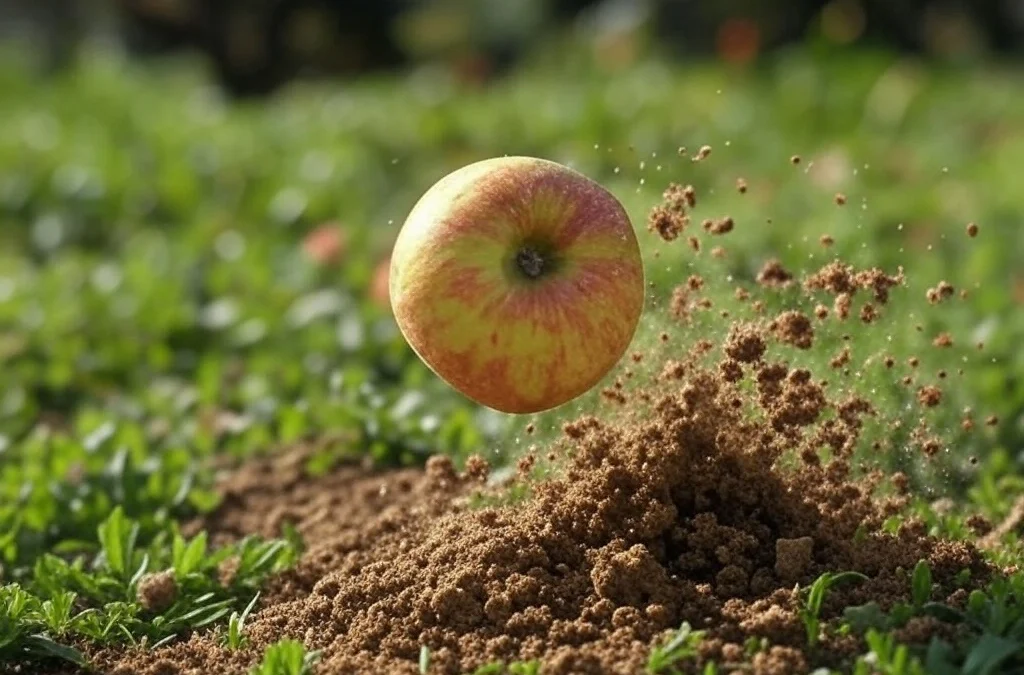Saving our Mother Nature is our responsibility whatever profession you have. But, if you want to understand and have an in-depth study that focuses on nature, there are different degrees that you can take when pursuing your college degree. If you are a nature lover, and you want to be much closer, in this topic we are going to know the different degrees you can choose from related to nature. Here are the top 30 degrees related to nature and let’s all be a professional nature enthusiast.
The Best Degrees Related to Nature
1. Environmental Science – Environmental science is an interdisciplinary study that strives to figure out how humans affect the environment and how the environment affects humanity. It includes many different areas of study, such as biology, chemistry, physics, and the social sciences. Environmental scientists study pollution, conservation, climate change, the health of ecosystems, and how to handle resources in a way that is good for the environment. They try to come up with plans that meet the demands of individuals while also protecting natural ecosystems.
2. Ecology – Ecology is the scientific study of the interactions between organisms and their environment. Ecologists examine the distribution, abundance, behavior, and relationships of living organisms within ecosystems. Ecologists contribute to our comprehension by letting us understand these interactions of biodiversity, population dynamics, nutrient cycling, and the overall functioning of ecosystems.
3. Conservation Biology – Conservation biology focuses on the preservation and restoration of biodiversity. Conservation biologists work to identify species and ecosystems at risk of extinction. They then begin developing strategies to protect and manage them. This includes habitat restoration, captive breeding programs, and addressing threats such as habitat loss, pollution, and invasive species.
4. Wildlife Biology – Wildlife biology focuses on the study of animal species, their behaviors, habitats, and populations. Wildlife biologists research to understand animal behavior, migration patterns, reproductive strategies, and how animals interact with their environment.
5. Forestry – Forestry study about the sustainable management of forests for economic, ecological, and social benefits. Foresters work to balance timber harvesting with forest conservation, wildlife habitat preservation, watershed protection, and recreational opportunities. They also contribute to combating deforestation and promoting sustainable land use.
6. Marine Biology – Marine biology is the study of marine organisms, ecosystems, and their interactions with the marine environment. Marine biologists explore the diverse life forms in oceans and other bodies of water. Their research informs marine conservation, fisheries management, and the understanding of climate change impacts on the ocean environment.
7. Natural Resource Management – Natural resource management is the study of the sustainable use and conservation of Earth’s resources, just as water, minerals, forests, and wildlife. Professionals in this field weigh human needs with ecological integrity, ensuring that resources are utilized in a way that supports both present and future generations.
8. Environmental Engineering – Environmental engineers apply engineering principles to develop solutions for environmental problems. They design systems and technologies to address issues like air and water pollution, waste management, and sustainable energy production.
9. Geology – Geology is the scientific study of Earth’s composition, structure, processes, and history. Geologists investigate the formation of rocks, minerals, and geological features, helping us understand the planet’s evolution and the forces that shape its surface.
10. Earth Science – Earth science involves different disciplines, including geology, meteorology, and oceanography, to study Earth’s systems and their interactions. It provides insights into natural disasters, climate change, and the interconnectedness of Earth’s spheres.
11. Atmospheric Science – Atmospheric scientists study Earth’s atmosphere, including its composition, weather patterns, and climate. They analyze atmospheric data to understand weather, predict severe weather events, and study the impacts of human activities on the climate of our earth.
12. Hydrology – Hydrology is the study of water in the environment, including its distribution, movement, and properties. Hydrologists investigate topics such as water cycle dynamics, groundwater flow, flood management, and water resource sustainability.
13. Agronomy – Agronomy is a study on crop production and soil management practices to ensure food security and sustainable agriculture. Agronomists study plant genetics, soil health, nutrient management, and crop rotation strategies to maximize agricultural productivity while minimizing environmental impacts.
14. Horticulture – Horticulture is a degree related to nature. It is the science of cultivating plants for food, medicinal, ornaments, and aesthetic purposes. Horticulturists specialize in plant breeding, propagation, cultivation techniques, and landscape design, contributing to both sustainable agriculture and urban green spaces.
15. Botany – Botany is the scientific study of plants, including their structure, function, classification, evolution, and ecological roles. Botanists investigate plant adaptations, plant-animal interactions, and the vital role plants play in the ecosystem.
16. Zoology – Zoology is the study of animals and their biology, behavior, evolution, and ecological relationships. Zoologists contribute to a better understanding of animal diversity, conservation, and the ecological roles of different species.
17. Landscape Architecture – Landscape architects design outdoor spaces that are aesthetically pleasing, functional, and environmentally sustainable. They integrate natural elements, such as plants, water features, and terrain, into their designs to create aesthetically pleasing environments.
18. Sustainable Agriculture – Sustainable agriculture aims to meet current and future food needs while minimizing negative environmental impacts. It emphasizes practices like crop rotation, organic farming, integrated pest management, and soil conservation.
19. Renewable Energy – The field of renewable energy focuses on harnessing sources of energy that are naturally replenished, such as solar, wind, hydroelectric, and geothermal power. This shift away from fossil fuels is essential for combating climate change and promoting environmental sustainability.
20. Environmental Policy – Environmental policy specialists develop and implement policies to address environmental problems. They work at local, national, and international levels to create regulations and strategies that promote sustainability, reduce pollution, and protect natural resources.
21. Geographical Information Systems (GIS) – GIS professionals use spatial data to create maps, analyze patterns, and make the right decisions related to environmental planning, resource management, and disaster response.
22. Environmental Education – Environmental educators promote awareness and understanding of environmental issues among the public and students. They design educational programs that encourage sustainable behaviors and encourage a sense of responsibility toward the environment.
23. Oceanography – Oceanographers study the physical, chemical, biological, and geological aspects of the oceans. Their research contributes to our understanding of marine ecosystems, ocean circulation patterns, and the impacts of climate change on marine ecosystems.
24. Soil Science – Soil scientists study soil properties, fertility, composition, and health. This degree related to nature investigates how soil influences plant growth, nutrient cycling, and water filtration, making their work crucial for sustainable agriculture and land management.
25. Paleontology – Paleontologists study ancient life forms through the analysis of fossils. Their research provides insights into Earth’s history, the evolution of species, and the environmental conditions of past eras.
26. Park and Recreation Management – Professionals in this field manage natural and recreational areas, ensuring their conservation, accessibility, and enjoyment for present and future generations. They design and maintain trails, parks, and other outdoor spaces while preserving their ecological integrity.
27. Environmental Economics – Environmental economists study the economic implications of environmental policies, resource management, and sustainability practices. They assess the value of natural resources and ecosystem services, helping policymakers make informed decisions.
28. Ecotourism – Ecotourism promotes responsible travel to natural areas, aiming to minimize negative impacts on the environment and support local communities. It encourages travelers to appreciate and conserve natural landscapes and wildlife.
29. Remote Sensing – Remote sensing specialists use satellite and aerial data to monitor and analyze changes in the environment over large geographical areas. This degree related to nature helps in tracking deforestation, urban growth, and natural disasters.
30. Climatology – Climatologists study long-term climate patterns, variations, and trends. They also analyze temperature, precipitation, and atmospheric data to understand the causes and impacts of climate change.
Read Also: Top 30 Art Education Examples
Importance of Degrees Focused on Nature
In an age characterized by rapid technological advancements and shifting global priorities, the importance of academic degrees with a nature-centric focus cannot be overstated. These specialized programs, often overlooked in favor of more mainstream options, provide a unique perspective on the intricate dance between humanity and the natural world. Far from a mere niche, these degrees offer profound insights that are crucial for addressing a wide array of contemporary challenges, all while maintaining a broad appeal for the intellectually curious.
Degrees centered on nature, such as environmental science, conservation biology, and sustainable agriculture, foster a deep appreciation for the planet we call home. They serve as an intellectual compass guiding students toward an understanding of the intricate web of life and the critical role humans play within it. This insight, while not always immediately evident, touches upon virtually every aspect of our existence.
In essence, these degrees equip individuals with a holistic understanding of our environment, transcending traditional disciplinary boundaries. Graduates emerge with the tools and knowledge to tackle complex problems, from preserving endangered species and managing our natural resources to cultivating a sustainable future for generations to come.
But the significance of these degrees extends beyond the ecological sphere. They are the bedrock upon which our social and economic structures rest. By examining the delicate balance between natural systems, economic growth, and societal well-being, graduates in these fields are uniquely poised to shape the future. They bridge the gap between urban and rural, offering solutions that acknowledge the interdependence of all life forms, human and non-human alike.
In today’s rapidly evolving world, these degrees also offer a significant edge in the job market. Companies, governments, and organizations are increasingly seeking individuals who can tackle the intricate challenges posed by our changing environment. These degrees, therefore, are not only an investment in the future but also a pathway to rewarding careers that drive positive change.
As we stand at the threshold of a new era, facing challenges that transcend borders and span across industries, the wisdom and knowledge instilled by nature-centric degrees become more vital than ever. They offer a profound understanding of our world and the power to shape it positively.
The pursuit of knowledge in these fields is not just for the environmentally inclined; it is for anyone who seeks to make informed decisions in a rapidly changing world. Whether you aspire to protect natural wonders, advance cutting-edge technologies, or guide policy decisions, a degree centered on nature is your gateway to an enlightened and sustainable future. The power of these programs lies in their capacity to equip us with the tools needed to preserve, protect, and thrive in the world we all share.
Read also: Top 30 Benefits of Planting Trees
The Most Popular on BitGlint

40 Social Dilemma Examples in the World & Real Life
Social dilemmas are everywhere. They shape the choices we make at work, in our communities, and even on a global...

30 Favor Examples & Definition
Doing a favor means helping someone without expecting anything in return. It’s an act of kindness that can strengthen...

30 Naivety Examples & Definition
Naivety is something most people experience at some point in their lives. It often starts in childhood, but for some,...

20 Chronology Examples & Meaning
Chronology is something we use more than we realize. It shows up in conversations, in how we remember the past, and in...

30 Wishful Thinking Examples & Meaning
Wishful thinking is something we all do at some point. You hope things will turn out fine—even if there’s no real...

20 Examples of Gravity & What Gravity Really Is
Gravity is one of the most important forces in the universe, but many people don’t fully understand what it really is...

20 Examples of Secondary Consumers in the Food Chain
Secondary consumers are animals that eat other animals—usually herbivores that feed on plants. They’re an important...
Get Inspired with BitGlint

